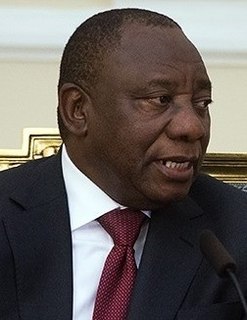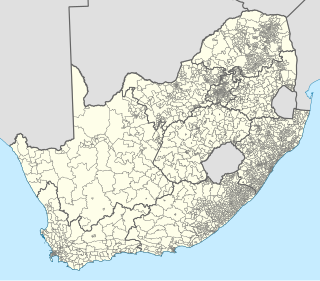 W
WPresidential elections were held in Transvaal in 1898. The result was a victory for Paul Kruger.
 W
WGeneral elections were held in South Africa on 29 April 1981. The National Party, under the leadership of P. W. Botha since 1978, lost some support, but achieved another landslide victory, winning 131 of 165 directly elected seats in the House of Assembly.
 W
WGeneral elections were held in South Africa in August 1984 to elect Coloured and Indian representatives to their respective houses of the Tricameral Parliament. The Coloured elections for the House of Representatives took place on 22 August, and resulted in a victory for the Labour Party, headed by the Reverend Allan Hendrickse, which won 76 of the 80 seats. The Indian elections for the House of Delegates were held on 28 August and saw the National People's Party emerge as the largest party, winning 18 of the 40 seats. The Indian elections were opposed by the United Democratic Front and were marked by boycotts and protests. Despite the Prohibition of Political Interference Act of 1968 which banned mixed-race political parties, nine Indian members of Hendricke's Labour Party stood as independents, one of whom won a seat and subsequently joined the NPP.
 W
WMunicipal elections were held in South Africa on 5 December 2000 to elect members to the local governing councils in the municipalities of South Africa.
 W
WAn indirect presidential election was held in South Africa on 6 May 2009 following the general election on 22 April 2009. Jacob Zuma of the ruling African National Congress won the election with 277 votes, while Mvume Dandala of the Congress of the People got 47 votes. The 67 members of the official opposition Democratic Alliance abstained from voting.
 W
WAn indirect presidential election was held in South Africa on 22 May 2019 following the general election on 8 May 2019. Cyril Ramaphosa of African National Congress, which held a majority in parliament, was the only candidate nominated and was elected unopposed.
 W
WThe Cambridge History of South Africa is a two volume history of South Africa published by Cambridge University Press in 2009 and 2011.
 W
WDu Toit's Pan, now usually Dutoitspan, refers to one of the earliest diamond mining camps at what is now Kimberley, South Africa. It was renamed Beaconsfield, which existed as a separate borough from Kimberley itself until Kimberley and Beaconsfield were amalgamated as the City of Kimberley in 1912.
 W
WThe Electoral Commission of South Africa is South Africa's election management body, an independent organisation established under chapter nine of the Constitution. It conducts elections to the National Assembly, provincial legislatures and municipal councils.
 W
W(Prop) Preller Geldenhuys was a pilot in the Rhodesian Air Force. He left Rhodesia in 1982 and began a new career in South Africa. After retiring, he became an author.
 W
WLost Trails of the Transvaal is a history book written by TV Bulpin and published in 1956.
 W
WThe Oxford History of South Africa is a two volume history of South Africa published by Clarendon Press in 1969 and 1971. The publication of the work marked a watershed in the historiography of South Africa by for the first time giving indigenous Africans a central role in the history of the country.
 W
WThe Sand River Convention of 16 January 1852 was a convention whereby the United Kingdom of Great Britain and Ireland formally recognised the independence of the Boers north of the Vaal River.
 W
W W
WVan Riebeeck's Hedge is a hedge planted in 1660 by Jan van Riebeeck to mark the border of the Dutch East India Company settlement in what is now Cape Town, South Africa. The hedge consisted of indigenous wild almond trees. Sections of the hedge can still be seen in Kirstenbosch National Botanical Garden and Bishopscourt, and have been declared a National Monument.
 W
WIn South Africa, wards are geopolitical subdivisions of municipalities used for electoral purposes. Each metropolitan and local municipality is delimited by the Municipal Demarcation Board into half as many wards as there are seats on the municipal council. Each ward then elects one councillor directly, and the remaining councillors are elected from party lists so that the overall party representation is proportional to the proportion of votes received by each party.
 W
WThe practice of whaling in South Africa gained momentum at the start of the 19th century and ended in 1975. By the mid-1960s, South Africa had depleted their population of fin whales, and subsequently those of sperm and sei whales, and had to resort to hunting the small and less-profitable minke whale. Minke whales continued to be caught and brought to the Durban whaling station from 1968 until 1975. South Africa comprehensively banned whaling in 1979.